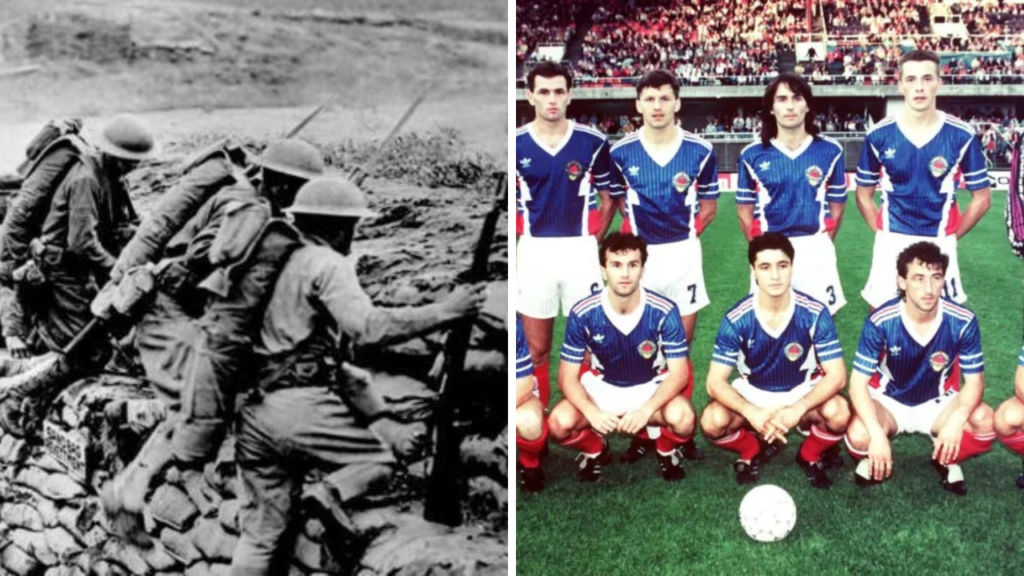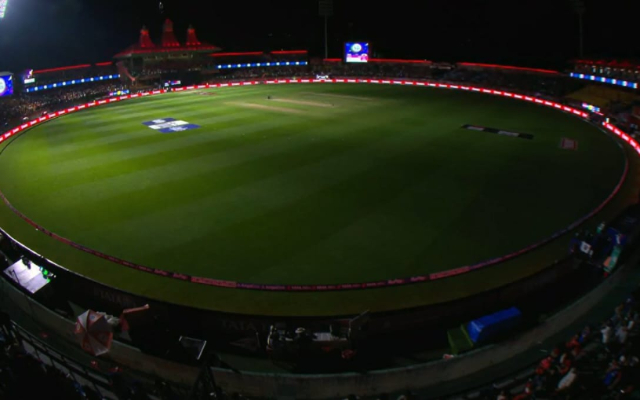
Sport has often been seen as the great unifier, especially at the Olympic Games. In 1936, Luz Long — who represented Nazi Germany and its vile Aryan Supremacy theories — befriended Jesse Owens, who was a second-class citizen in the USA long after he won four gold medals in Berlin.
A generation later, in Mexico City in 1968, Australia’s Peter Norman wore an Olympic Project for Human Rights (OPHR) badge on the podium in solidarity with Tommie Smith and John Carlos and their Black Power salute.
But from time to time, even sport has been unable to stay afloat against the political tide. With the Indian Premier League (IPL) now suspended for a week in view of the ongoing conflict between India and Pakistan, we look at other instances where war or other geopolitical tension stopped play.

Berlin Olympics, 1916
A new stadium had already been built by the time Archduke Franz Ferdinand’s assassination in Sarajevo precipitated World War I. The Olympics would resume in Antwerp in 1920.
The 1940 and 1944 Olympic Games
Tokyo had been named hosts for 1940, but the Japanese annexation of Manchuria forced the International Olympic Committee (IOC) to consider Helsinki as an alternative. Adolf Hitler’s expansionist plans put paid to that, and the 1944 Games, meant for London, never took place either.
Football World Cups in 1942 and 1946
World War II was at its peak by the time the 1942 World Cup was supposed to be held. Benito Mussolini’s Italy, who had lifted the trophy in 1934 and 1938, was allied with Nazi Germany, and even when the war ended three years later, FIFA decided not to host the competition in 1946. Most of Europe was still in ruins, and the next World Cup went across the Atlantic Ocean to Brazil.
English league football
Strangely, despite war breaking out in July 1914, the entire 1914-15 league season was played in England, with Everton winning their second title. After that, there would be no football till 1919-20. Two decades later, Hitler’s invasion of Poland on September 1, 1939 meant that there would be no league football for seven seasons.
War in the Balkans
This didn’t cause a sporting event to be cancelled, but it marked the death-knell of a great team. Red Star Belgrade had won the European Cup in 1991, and Yugoslavia, World Cup quarterfinalists in 1990 and U-20 World Cup winners in 1987, boasted some of the finest players in Europe. They scored 24 goals and conceded only four in eight games while qualifying for Euro 1992. Then, war broke out, Yugoslavia was sanctioned by the United Nations, and Denmark took their place. To add insult to the injuries of that golden generation, the Danes would win the tournament too.
For Sports Related Content Click here



